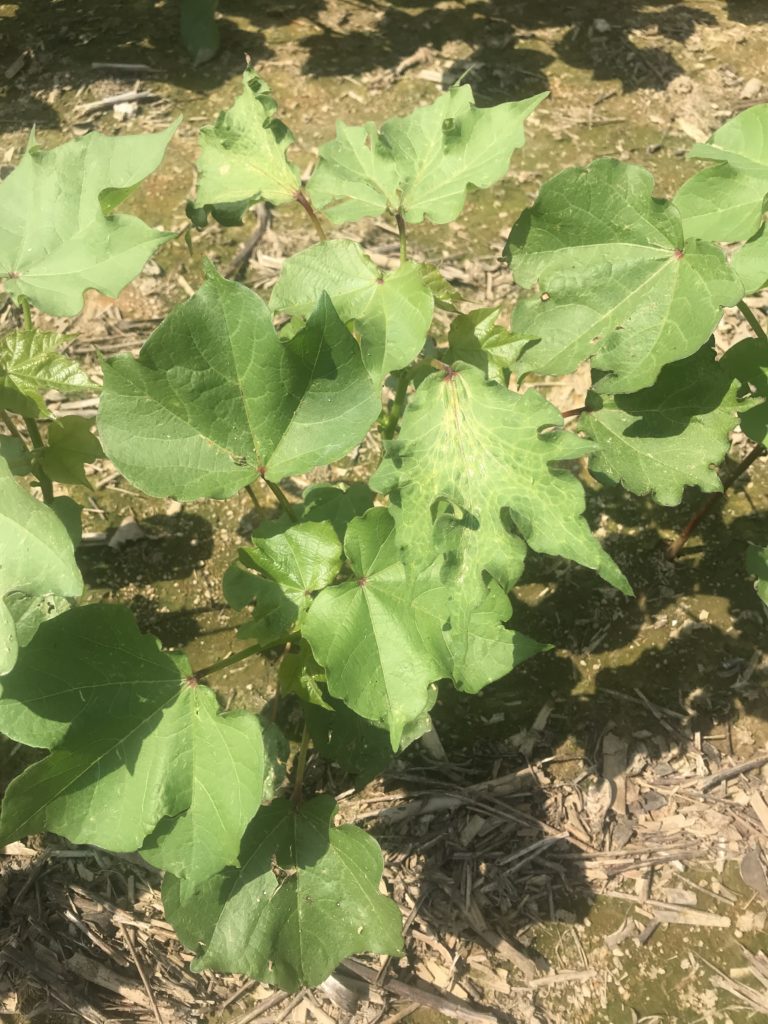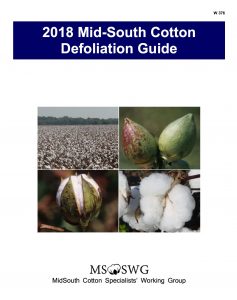 The 2018 Mid-South Cotton Defoliation Guide is now available online. You can access the guide by clicking the above image or any of the embedded links within this post. This guide was compiled by Extension Specialists from throughout the Mid-South and is updated yearly.
The 2018 Mid-South Cotton Defoliation Guide is now available online. You can access the guide by clicking the above image or any of the embedded links within this post. This guide was compiled by Extension Specialists from throughout the Mid-South and is updated yearly.
All posts by Tyson Raper, Cotton & Small Grains Specialist
Increased reports of boll cavitation
Authors: Tyson Raper, Avat Shekoofa, and John Snider.
Over the past few weeks, reports of thumbnail-sized boll abortion have emerged in some areas of West Tennessee. While square and small boll abortion is very common every year, recent reports have indicated many of these aborting bolls are not shedding; instead, the small, dead bolls are remaining on the plants. This phenomenon is often referred to as ‘boll freeze’, ‘boll dangle’, or most commonly, ‘cavitation’.
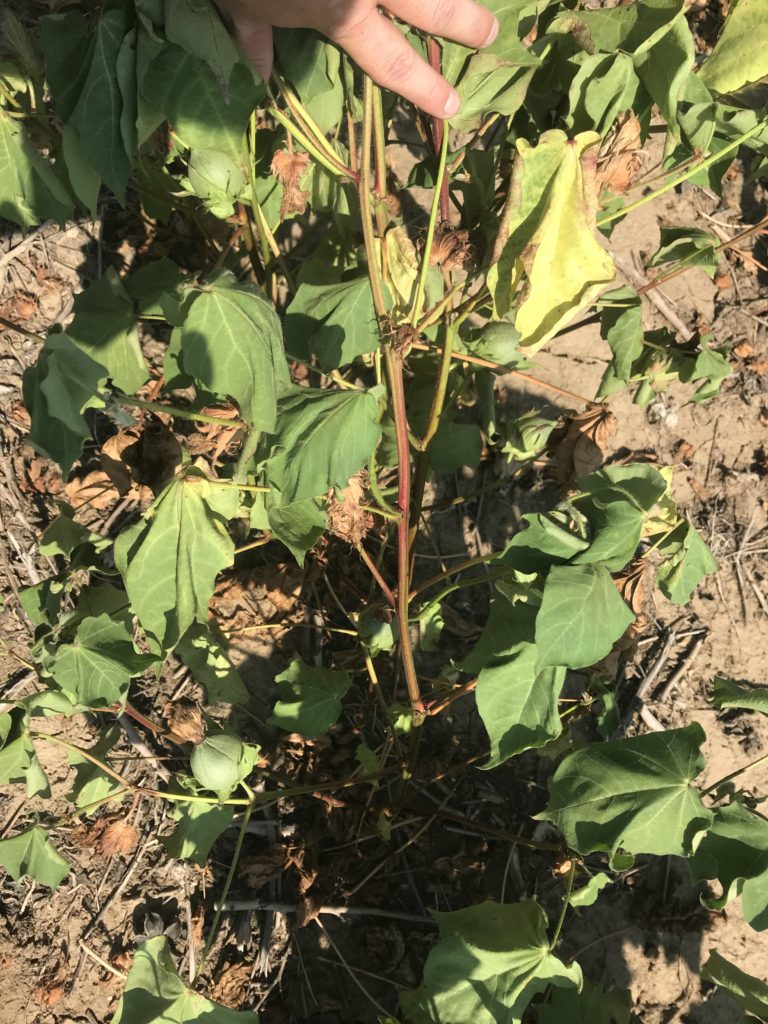 Figure 1: Severe drought stress in this plant resulted in the cavitation of small reproductive structures. Continue reading
Figure 1: Severe drought stress in this plant resulted in the cavitation of small reproductive structures. Continue reading
Regulating growth under ideal growing conditions
 At the moment, cotton appears to be growing almost as fast as palmer amaranth; rains and abnormally warm temperatures have promoted rapid growth and the second (or third) application of Plant Growth Regulators (PGRs) are currently being applied. With our current growing conditions, forecast, and planted cultivars, I’m applying and recommending aggressive rates; now that the root zone has expanded and N uptake has begun to increase exponentially, expect rapid plant growth to continue in areas which have adequate moisture. This blog highlights points to be considered when attempting to regulate growth in 2018. Continue reading
At the moment, cotton appears to be growing almost as fast as palmer amaranth; rains and abnormally warm temperatures have promoted rapid growth and the second (or third) application of Plant Growth Regulators (PGRs) are currently being applied. With our current growing conditions, forecast, and planted cultivars, I’m applying and recommending aggressive rates; now that the root zone has expanded and N uptake has begun to increase exponentially, expect rapid plant growth to continue in areas which have adequate moisture. This blog highlights points to be considered when attempting to regulate growth in 2018. Continue reading
Herbicide injured cotton: Deciding to keep it and management after
I’ve received several calls this week requesting information on whether or not to keep injured cotton and management after the injury. In this brief article, I will cover the ‘keep or discard’ decision and briefly cover best management practices after the decision to keep the crop has been made. Depending on your situation, you may need to document the injury and/or keep a portion of the field to determine the yield penalty. That information is beyond the scope of this article but should be available from your insurance agent or attorney. Continue reading
Easing off the clutch: 2018 cotton planting
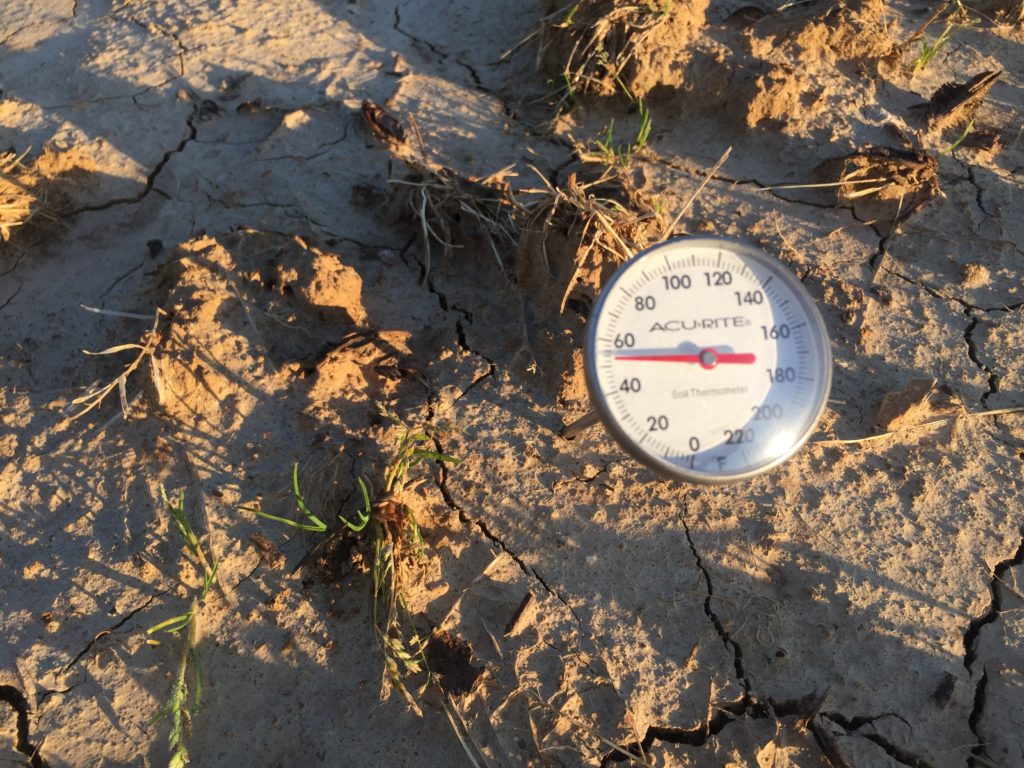 I’ve visited with several over the past few days who either started planting yesterday (4/30), who plan to begin today (5/1), or who will be planting by tomorrow (5/2). While we have a few very early planting-date trials established here in Jackson, none of our large-plot trials have been planted and none of our small-plot work requiring normal planting dates have been planted either. That will change for my program today (5/1). Continue reading
I’ve visited with several over the past few days who either started planting yesterday (4/30), who plan to begin today (5/1), or who will be planting by tomorrow (5/2). While we have a few very early planting-date trials established here in Jackson, none of our large-plot trials have been planted and none of our small-plot work requiring normal planting dates have been planted either. That will change for my program today (5/1). Continue reading
Freeze damage to winter wheat, forecast April 8th
Our wheat crop has matured rapidly in the relatively warm weather. Several of the fields I walk are past Feekes 8 and are quickly approaching Feekes 9. This puts us several weeks past jointing. With the head roughly 12 or more inches above the ground at those growth stages, concerns about the temperatures forecast for the weekend have been raised. Continue reading
REMINDER: Cotton Focus THIS THURSDAY, Feb 8th @ First United Methodist Church in Downtown Jackson
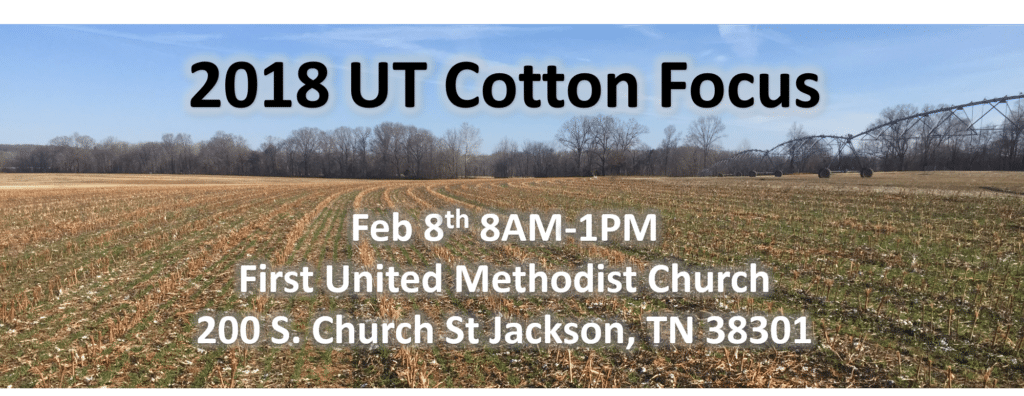 The 2018 Cotton Focus will be held at the First United Methodist Church (200 S. Church St, Jackson, TN 38301) this Thursday, Feb. 8th beginning at 8 AM and concluding with lunch. Pesticide recertification points and CCA/CEUs will be offered. A dicamba training will be offered after lunch. Parking information and detailed agenda information is included below: Continue reading
The 2018 Cotton Focus will be held at the First United Methodist Church (200 S. Church St, Jackson, TN 38301) this Thursday, Feb. 8th beginning at 8 AM and concluding with lunch. Pesticide recertification points and CCA/CEUs will be offered. A dicamba training will be offered after lunch. Parking information and detailed agenda information is included below: Continue reading
Cotton Focus February 8th at First United Methodist Church in Downtown Jackson
 The 2018 UT Cotton Focus is only a few weeks away. Please note we will host this year’s event Thursday, February 8th at the First United Methodist Church in Downtown Jackson (200 S. Church St Jackson, TN 38301) due to renovation of the WTREC facility.
The 2018 UT Cotton Focus is only a few weeks away. Please note we will host this year’s event Thursday, February 8th at the First United Methodist Church in Downtown Jackson (200 S. Church St Jackson, TN 38301) due to renovation of the WTREC facility.
Registration starts at 8AM and the event will end with a provided lunch. After lunch, Dr. Larry Steckel will be conducting UT Extension’s Dicamba Stewardship Training. Continue reading

